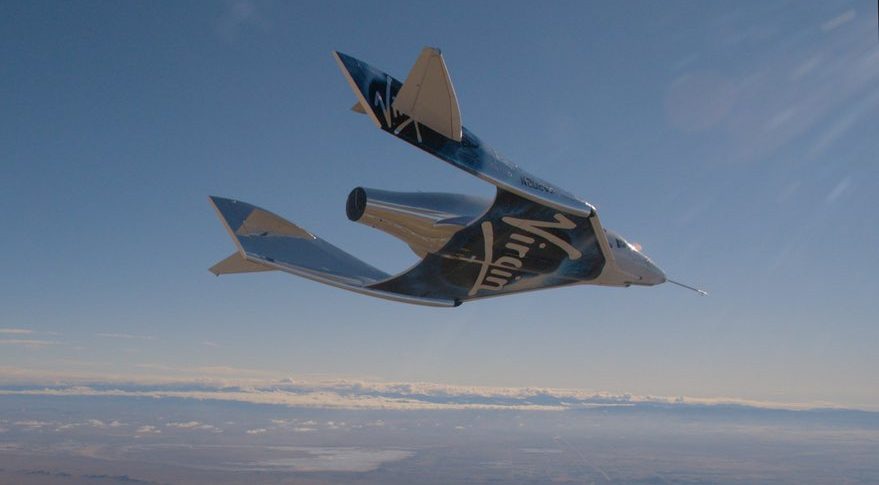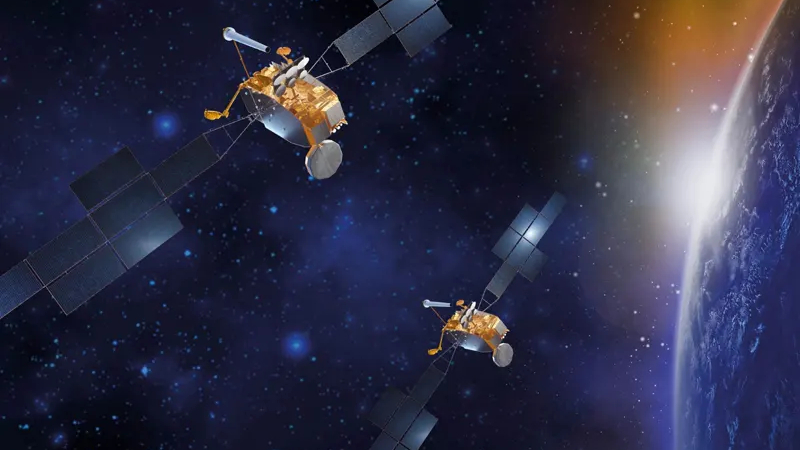Virgin Galactic Nearing Powered SpaceShipTwo Test Flights

WASHINGTON — The chief executive of Virgin Galactic said Sept. 7 that the company's second suborbital spaceplane was "at the edge" of beginning powered test flights, after at least one more glide flight.
George Whitesides, speaking at the 20th Annual International Mars Society Convention in Irvine, California, said that while the company was gearing up for the next phase of flight testing of SpaceShipTwo, it would not give a timetable for beginning commercial flights.
"Galactic is still trucking away and we are getting close to powered flight," he said. "We're now right at the edge of powered flight." [Virgin Galactic's 1st Glide Flight of SpaceShipTwo Unity]
The company has been performing a series of glide flights of its second SpaceShipTwo, named VSS Unity, that started in December 2016. During those flights, SpaceShipTwo is carried aloft by, and then released from, its WhiteKnightTwo carrier aircraft, gliding to a runway landing at the Mojave Air and Space Port in California.
The sixth, and most recent, glide flight of this SpaceShipTwo took place Aug. 4. At the time, the company called the flight "essentially a dry run for rocket-powered flights," with most of the components of the hybrid rocket motor that will power the vehicle on those later flights included.
Whitesides said that glide flight was not the last one planned for the vehicle, but indicated the glide flight part of the test program was wrapping up. "We have, probably, a very small number of glide flights left before we start powered flight, which will be a great milestone," he said.
The company's first SpaceShipTwo, VSS Enterprise, performed several powered flight tests in 2013 and 2014. It was on its fourth powered flight test in October 2014 when the vehicle broke apart in flight, killing the co-pilot and injuring the pilot. An investigation by the National Transportation Safety Board (NTSB) concluded that the co-pilot had prematurely unlocked SapceShipTwo's feathering system as the vehicle accelerated through the sound barrier.
Breaking space news, the latest updates on rocket launches, skywatching events and more!
The hybrid rocket motor, whose development had long been a source of delays for the development of SpaceShipTwo, is now ready to go, he said. "We've been doing a bunch of engine testing. That's now done, so we're ready to go into powered flight," he said, showing a video of one of the final qualification tests of the motor, which was fired on a test stand while attached to a model of the vehicle.
Whitesides indirectly referenced the difficulties in developing that engine, which he said produces 60,000 pounds-force of thrust. "It is, I think, the most advanced hybrid rocket motor that's ever been built," he said. "Hybrid rocket motors are hard, but our engineering team has done a great job working on that."
He also said Virgin Galactic has two more SpaceShipTwo vehicles under construction at its Mojave facility. Workers had recently bonded the cabin of one of the carbon composite vehicles. Those vehicles, he said, would be ready for tests in "a year or two."
However, as he has done in the past, Whitesides avoided giving any specific timetables. Asked when commercial flights of SpaceShipTwo would start, he said, "When we're done with the test flight program. We've got to wait until we think it's safe."
Company founder Sir Richard Branson also declined to give a schedule in an April interview, despite suggesting in other recent interviews that he would be "very disappointed" if SpaceShipTwo is not in commercial service by the end of 2018. "I've made the mistake of giving dates before and being wrong," he said.
This story was provided by SpaceNews, dedicated to covering all aspects of the space industry.

Jeff Foust is a Senior Staff Writer at SpaceNews, a space industry news magazine and website, where he writes about space policy, commercial spaceflight and other aerospace industry topics. Jeff has a Ph.D. in planetary sciences from the Massachusetts Institute of Technology and earned a bachelor's degree in geophysics and planetary science from the California Institute of Technology. You can see Jeff's latest projects by following him on Twitter.

